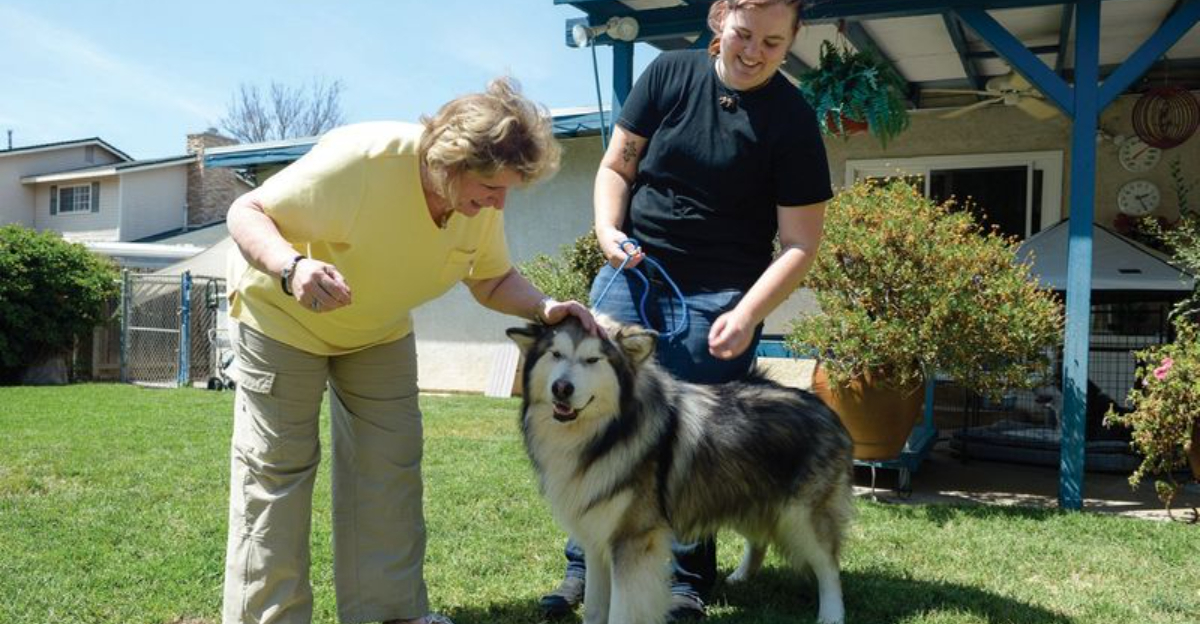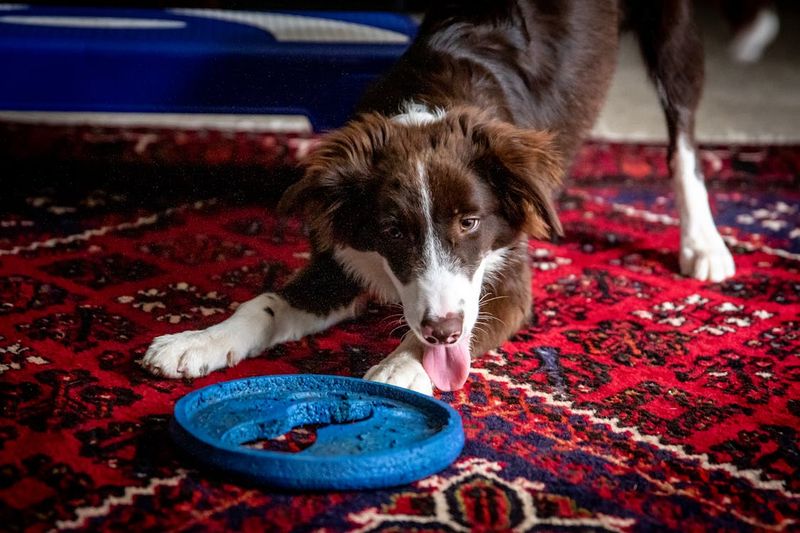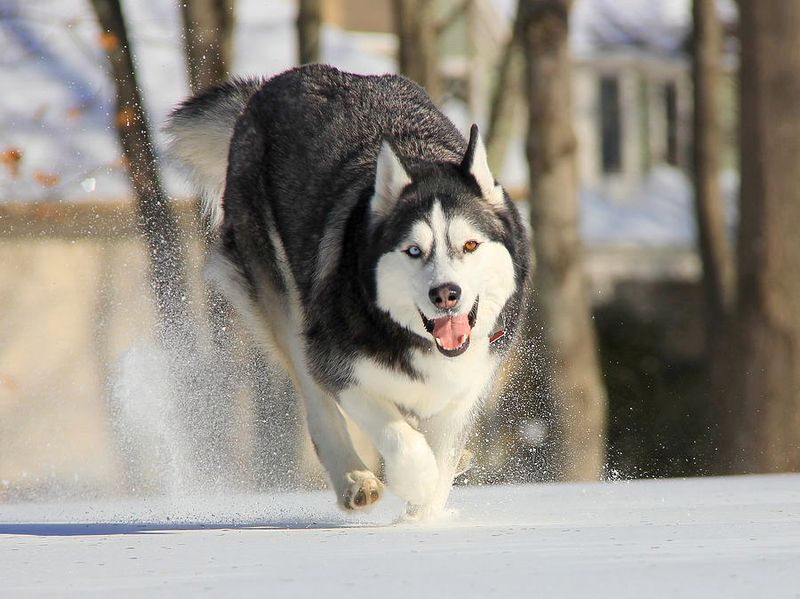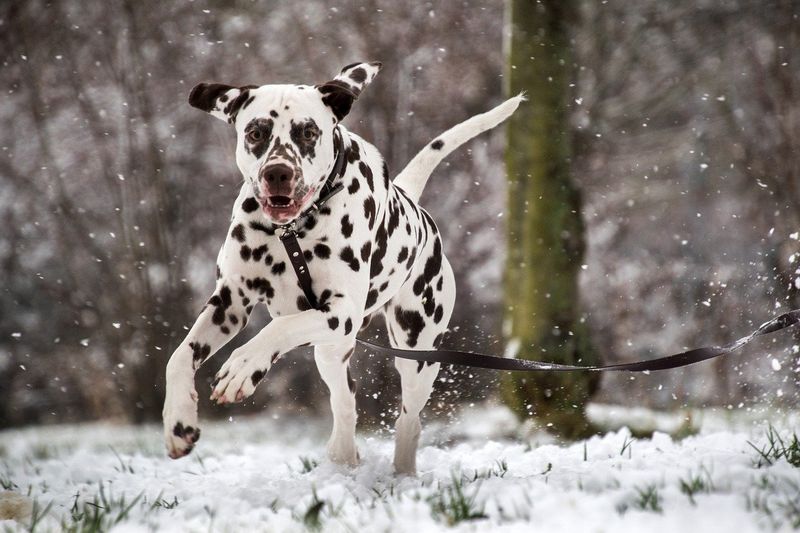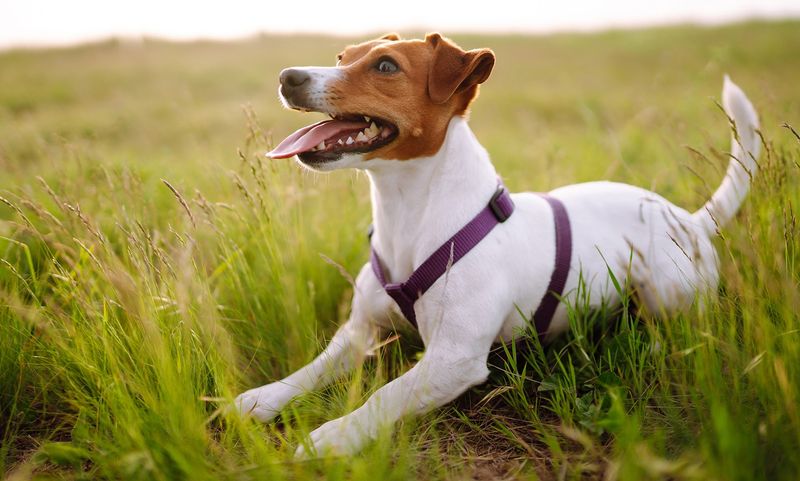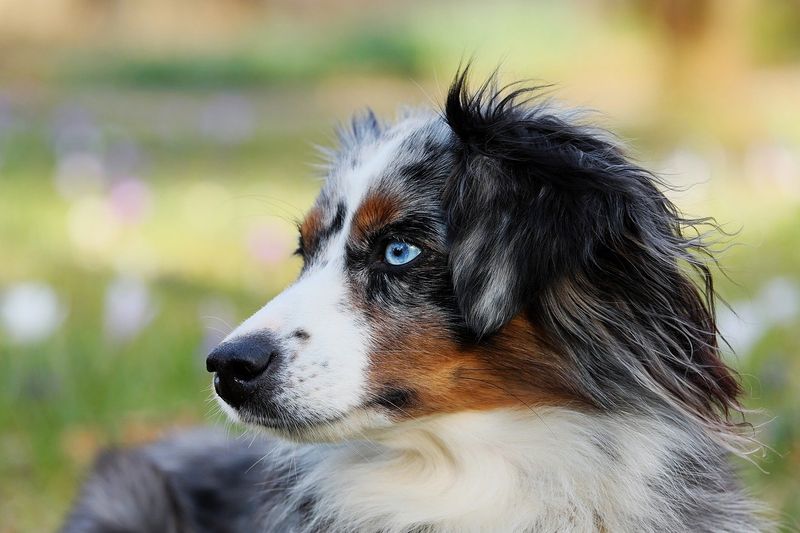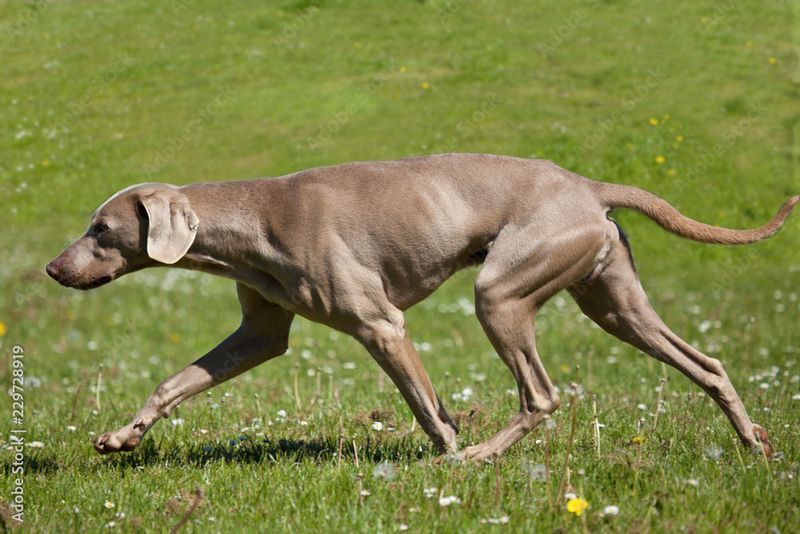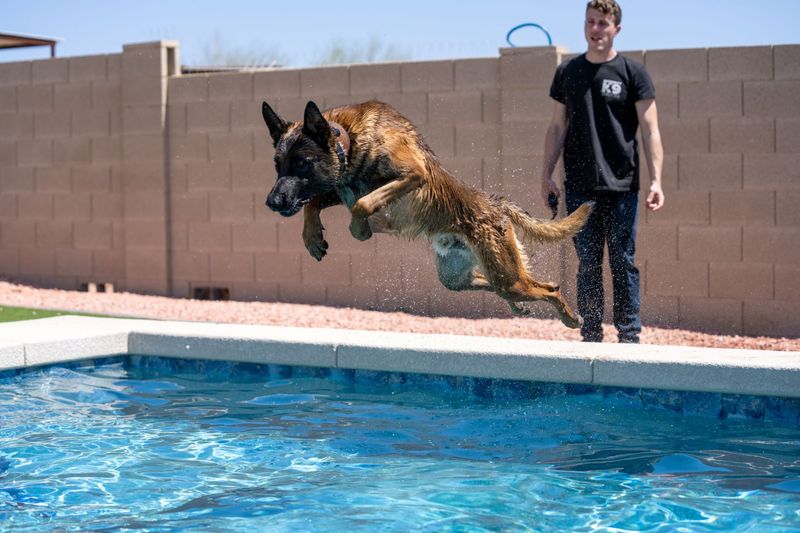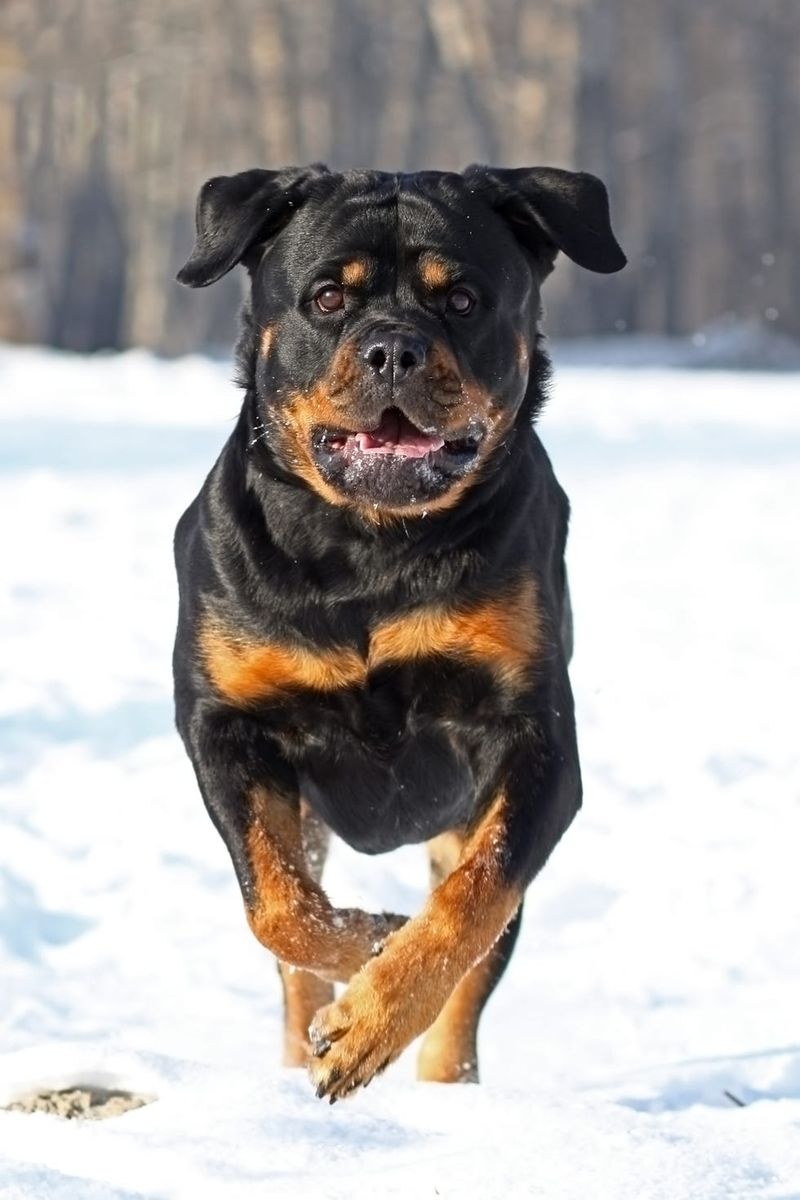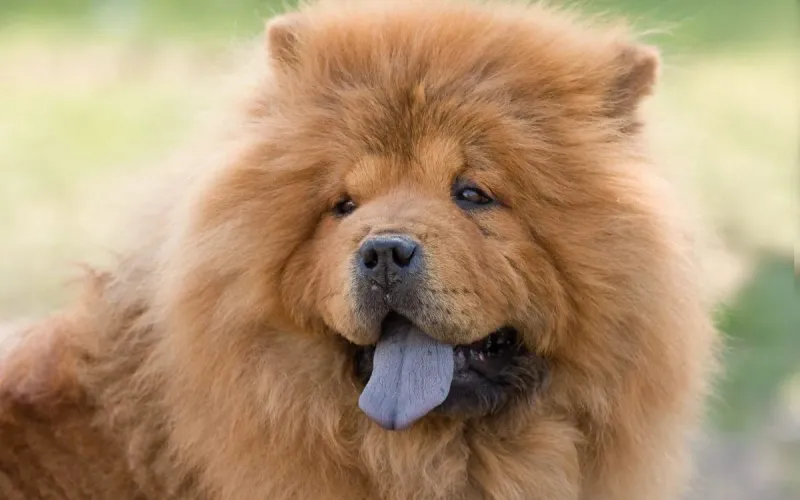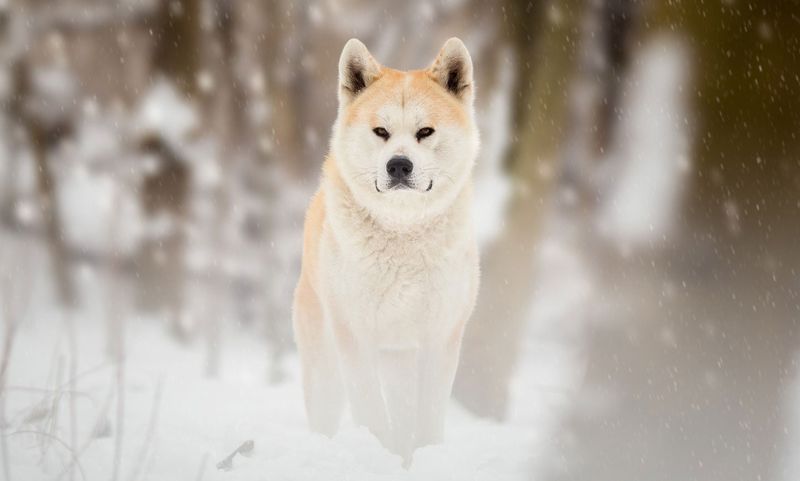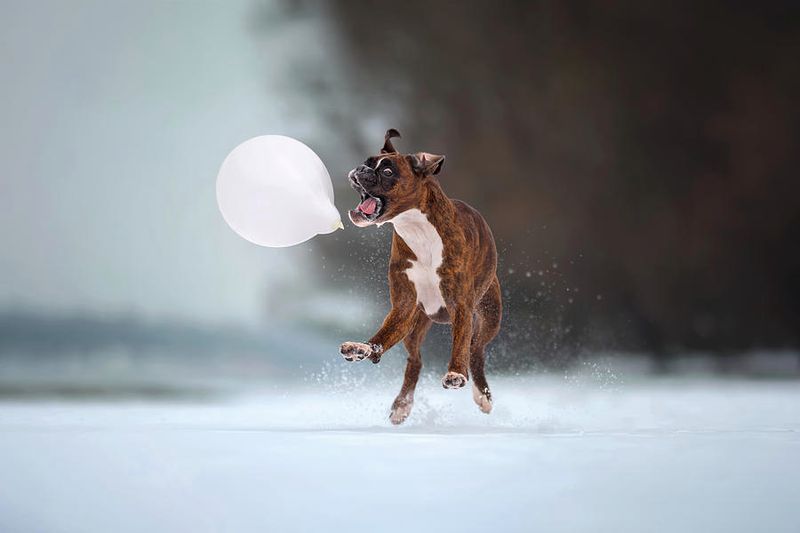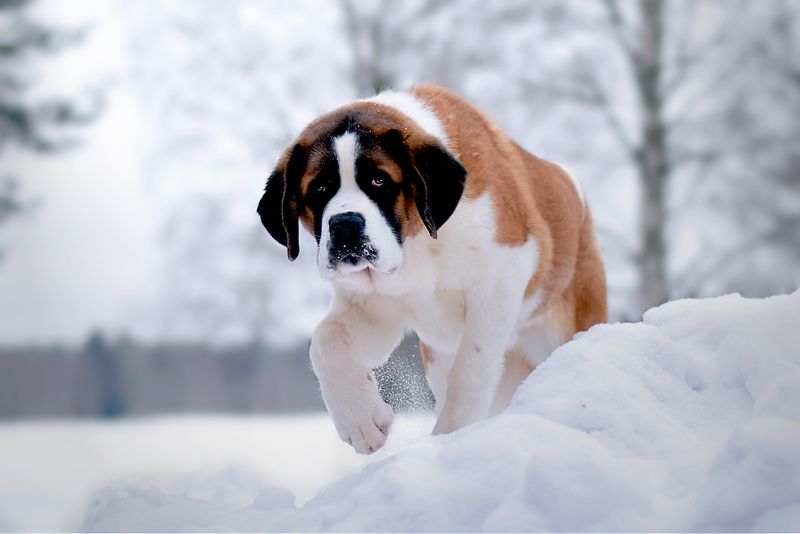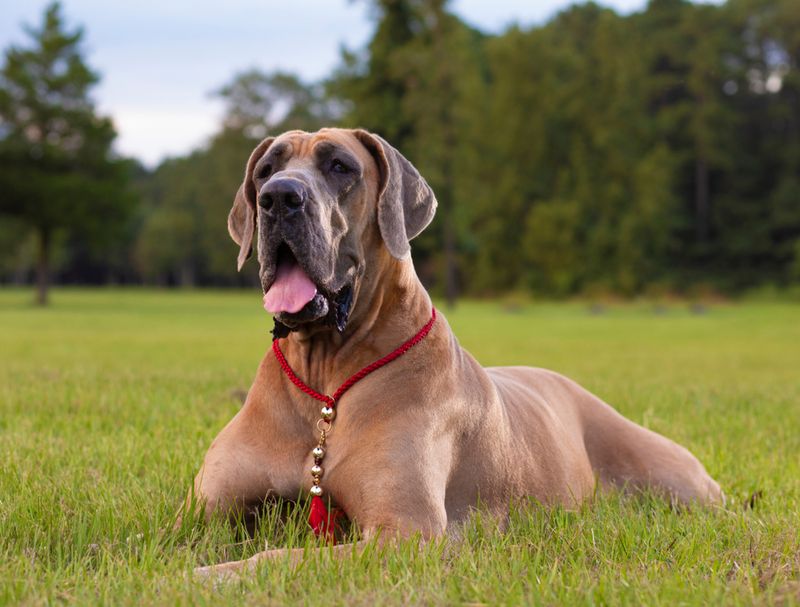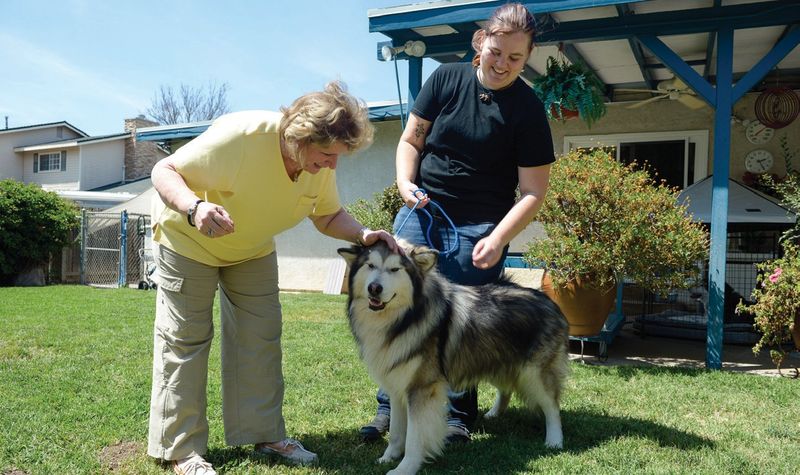Choosing the right dog breed for seniors involves careful consideration. Energy levels, size, and maintenance needs can make certain breeds less suitable companions for older adults. Here, we’ll explore 14 dog breeds that may present challenges for seniors, ensuring they make informed decisions when selecting their furry friends.
Border Collie
Known for their intelligence and agility, Border Collies are the Einsteins of the dog world. However, this brilliance comes with a need for constant mental stimulation and physical activity. Seniors may find keeping up with their high energy levels quite demanding.
Border Collies thrive in environments where they have plenty of space to run and tasks to keep them busy. Without such outlets, they can become bored and possibly destructive. This breed’s energetic nature and need for regular mental challenges can be overwhelming for someone seeking a more laid-back companion.
Siberian Husky
With their striking blue eyes and thick fur, Siberian Huskies are a visual delight. Yet, their independent nature and incredible energy levels make them a handful. Originally bred for pulling sleds in harsh climates, they require substantial exercise to keep them happy.
Huskies are known for their love of running and their ability to escape from almost any yard. Their strong-willed nature can be challenging for seniors who prefer a more obedient and contained pet. Managing a Husky can feel like a full-time job, requiring consistent and firm training.
Dalmatian
Famous for their unique spots and association with firehouses, Dalmatians have an energetic and playful demeanor. These dogs thrive on physical activity and require an owner who can keep up with their lively spirit.
Dalmatians possess a unique blend of charm and stubbornness, requiring patience and a lot of exercise. For seniors who might find long walks or frequent play sessions challenging, a Dalmatian’s needs may be more than they’re willing to meet. Their energetic nature demands an active lifestyle to prevent boredom and associated behavioral issues.
Jack Russell Terrier
Small but mighty, the Jack Russell Terrier is known for its energetic and lively behavior. This breed loves to dig, chase, and explore, often leading to a chaotic household if not properly managed.
Their intelligence and zest for life mean they require mental stimulation alongside physical activity. Seniors may find their boundless energy and slightly skittish nature overwhelming. Without enough exercise and engagement, Jack Russells can become mischievous and a bit of a handful, making them less ideal for those seeking a calm companion.
Australian Shepherd
Australian Shepherds, with their boundless energy and herding instincts, are natural athletes. They’re known for their intelligence and need for regular physical and mental challenges.
For seniors, this breed can be demanding due to its high exercise requirements and energetic nature. Australian Shepherds are happiest with a job to do, whether it’s herding livestock or participating in dog sports. Without such outlets, they can become bored and develop problematic behaviors, making them a challenging choice for less active owners.
Weimaraner
The Weimaraner, often called the “Grey Ghost,” is a majestic and athletic breed. Known for their sleek coats and hunting prowess, they require ample exercise and mental stimulation.
Weimaraners thrive in active families where they can partake in outdoor activities. For seniors, keeping up with their vigorous exercise needs can be exhausting. Their strong prey drive and need for companionship mean they don’t do well when left alone for long periods. This breed’s demands can be overwhelming for someone seeking a more low-key pet experience.
Belgian Malinois
Belgian Malinois are renowned for their work with military and police forces. Their intelligence and drive make them exceptional working dogs, but these traits can be challenging in a home setting.
This breed requires significant training and socialization. Belgian Malinois are not suited for a sedentary lifestyle, often needing rigorous physical and mental activities to stay satisfied. Seniors might find the breed’s relentless energy and need for stimulation too much to handle, as they demand an active, engaged owner to thrive.
Rottweiler
Rottweilers are powerful dogs known for their loyalty and protective nature. While they can be affectionate companions, their strength and assertiveness require experienced handling.
This breed demands consistent training and socialization from an owner who can provide firm guidance. For seniors, managing a Rottweiler’s strength and ensuring adequate exercise can be quite demanding. Without proper outlets for their physical and mental energy, Rottweilers may become bored and potentially destructive, making them a challenging choice for less active individuals.
Chow Chow
Chow Chows, with their lion-like appearance and aloof demeanor, are fascinating companions. However, their independent nature and stubborn streak can pose challenges.
This breed requires consistent training and socialization to prevent behavioral issues. Their reserved nature means they may not be the affectionate, cuddly companions some seniors seek. Chow Chows need a confident owner who can provide firm guidance and handle their strong-willed personality. This can be demanding for seniors who might prefer a more easygoing pet.
Akita
Akitas are known for their dignified and courageous disposition. Originally bred in Japan for hunting, they possess a strong, independent character.
Akitas require consistent, experienced handling and may not be suitable for first-time dog owners. Their size and strength mean they need regular exercise and mental challenges. Seniors might find it difficult to manage their stubbornness and high energy levels. Akitas also prefer to be the only pet in a household, demanding undivided attention and making them a less ideal choice for those seeking a more social companion.
Boxer
Boxers are lively and playful, known for their boundless enthusiasm and muscular build. They thrive on interaction and physical activity, which can be demanding.
This breed requires consistent training and socialization to harness their energy positively. Seniors might struggle with their often boisterous and exuberant nature, as Boxers need regular exercise to stay content. Their playful antics and need for companionship make them less suited for someone seeking a quiet, low-maintenance pet experience. Handling a Boxer’s needs can be quite an undertaking.
Saint Bernard
Saint Bernards are gentle giants, known for their size and calm demeanor. However, their sheer size and strength can be daunting.
This breed requires adequate space, making apartment living less ideal. Seniors might find it difficult to manage their large frame, especially during walks or grooming sessions. Although they have a gentle nature, Saint Bernards need consistent training to prevent them from becoming unruly. Their size and grooming needs can be overwhelming for those seeking a more manageable pet experience.
Great Dane
Great Danes are gentle giants, admired for their towering stature and friendly demeanor. Yet, their size and strength require ample space and a confident owner.
This breed’s needs can be overwhelming for seniors, especially when it comes to handling their size during walks or managing their diet and health care. Great Danes require regular exercise, training, and socialization to ensure they’re well-behaved companions. Their size can make them challenging to manage, particularly in smaller homes or for those less mobile.
Alaskan Malamute
Alaskan Malamutes, with their powerful build and thick coats, are born for cold climates and hard work. They need significant exercise and mental stimulation to stay happy.
This breed’s energy and strength mean they require an owner who can keep up with their vigorous lifestyle. Seniors might find their independent nature and high exercise needs difficult to manage. Alaskan Malamutes can be quite vocal and thrive best in environments where they have space to roam and tasks to perform, making them less suitable for a laid-back lifestyle.
